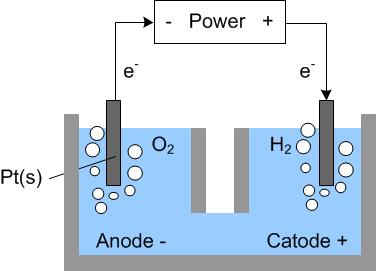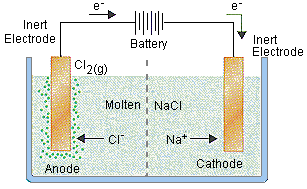What are some examples of decomposition reactions?
1 Answer
Decomposition reactions are chemical reactions in which a more complex molecule breaks down to make simpler ones. There are three types of decomposition reactions:
Thermal decomposition reactions;
Elctrolytic decomposition reactions;
Photo decomposition reactions.
Thermal decomposition - such reactions are usually endothermic, since energy in the form of heat is required to break the bonds of the more complex molecule. Examples include
Electrolytic decomposition - such reactions occur when an electric current is passed through an aqueous solution of a compound. Two classic examples are the electrolysis of water

and the decomposition of sodium chloride

Photo decomposition - these reactions occur in the presence of light (photons). Examples include
As a rule of thumb, most decomposition reactions are endothermic, since energy, either in the form of heat, electric current, or sunlight must be provided in order to break the bonds of the more complex molecule.

